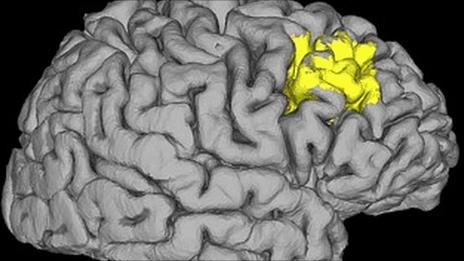Cardiff University's Cubric brain image centre milestone
- Published
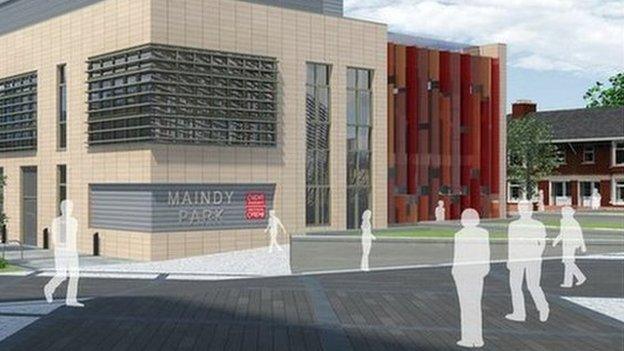
The new centre will open in the spring of 2016
A new £44m brain research imaging centre has reached an important milestone.
Completion of the main building work was marked at the Cubric centre at Cardiff University, which will have one of the most sophisticated MRI scanners in the world.
It will allow scientists to look at how brains work in minute detail.
The hope is to understand more about the causes of conditions like dementia, multiple sclerosis and schizophrenia.
Cubric at Maindy Park, which opens in a year, will bring together four hi-tech scanners to look at how the brain works and what is exactly happening when things go wrong.
One of the scanners is a European-first and will allow scientists to study brain cells only 1000th of a millimetre across.
BBC Wales health correspondent Owain Clarke takes a look at one of the new scanners
The hope is to make important breakthroughs in treating conditions over the next 20 years.
Prof Derek Jones, Cubric director, said: "It's the most exciting and important development in neuro-imaging in the last 10 years.
"It's going to be the largest imaging centre built in Europe, which is going to allow us to expand massively the breadth and depth of imaging we can do."

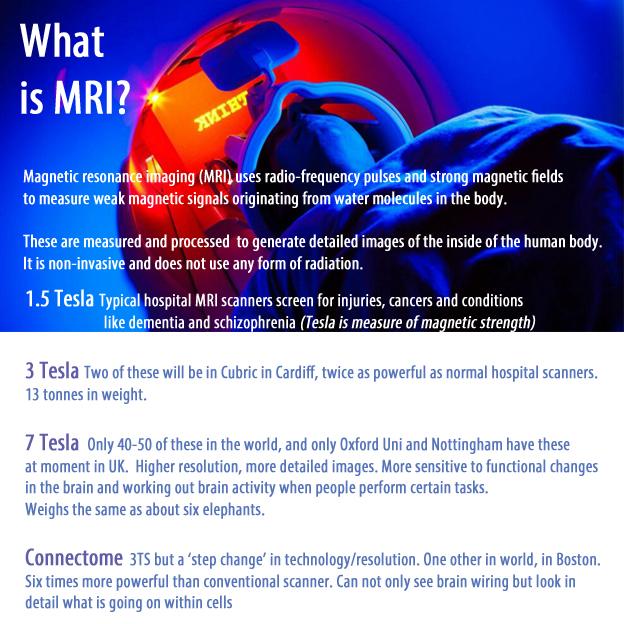

The new Connectome - or micro-structure scanner - is being supported by the Welsh government to the tune of £3.4m.
It will be a first outside the United States and allow scientists to unravel the full connectivity map of the human brain and hopefully unlock many of its secrets.
Prof Jones compares the conventional scanner to pointing a telescope at a galaxy and seeing a blur.
The Connectome will enable scientists to focus on what lies there for the first time.
"We will be able look in exquisite detail at the information we get from brain cells and can start to look at how these affect how the brain connections vary and how people perform in different tasks," he said.
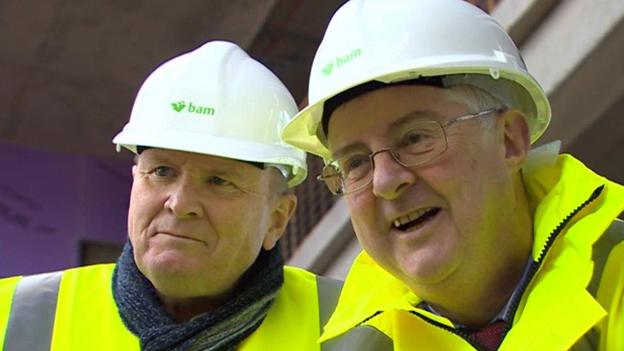
Health Minister Mark Drakeford (right) at the topping out ceremony on Thursday
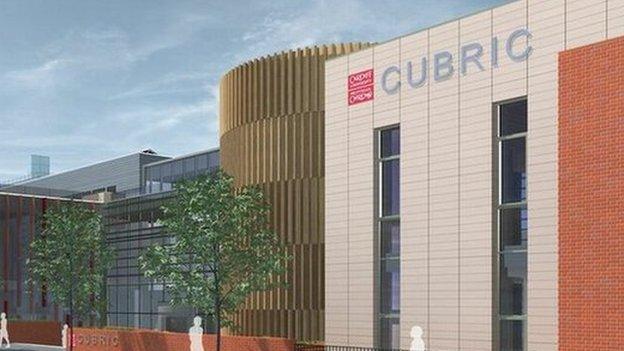
The team has already secured £15.6m in funding and grants to cover the costs of building and equipment
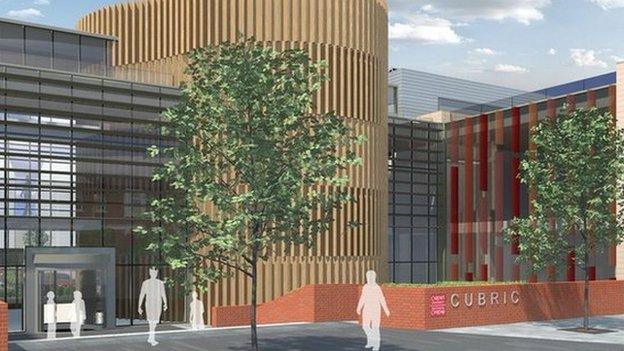
A total of 32 new scientists posts will be created
Prof Derek Jones explains what the new micro-structure brain scanner will be able to do
Within 10 years, the team hopes to know more about the biology of the brain within a whole range of disorders and, within 20 years, "to do something about it".
It will be a shared resource across Europe, with interested collaborators in the United States, Taiwan and China.
Health Minister Mark Drakeford, who visited the site for a topping-out ceremony, said: "There will be things that go on here that we know won't go on anywhere else in Europe".
He said it would attract some of the top researchers from around the world and was a "significant development for Wales".
"We want to make sure that research translates into treatments and that's why as a government we've put our money alongside others into what you see today".
- Published12 February 2015
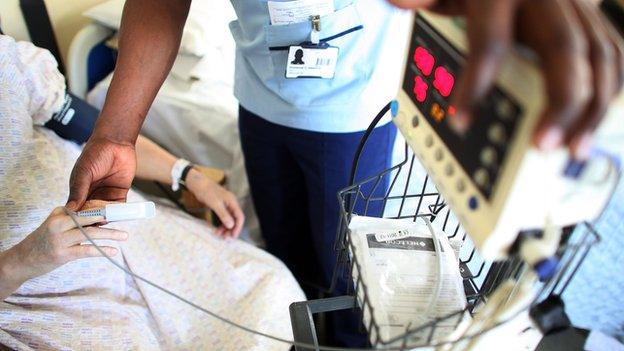
- Published10 August 2011
